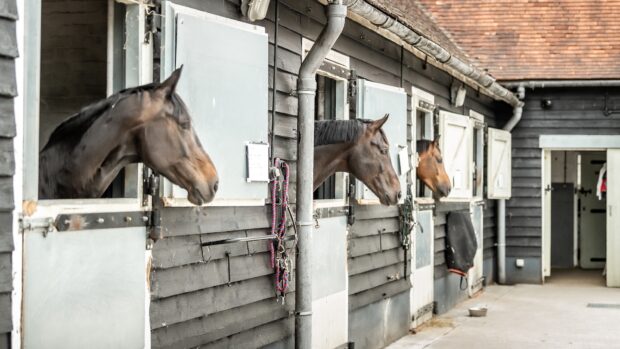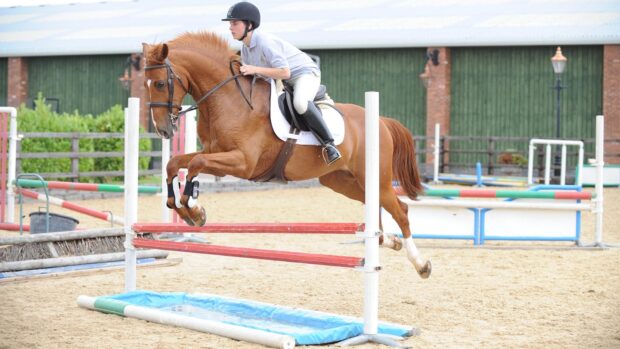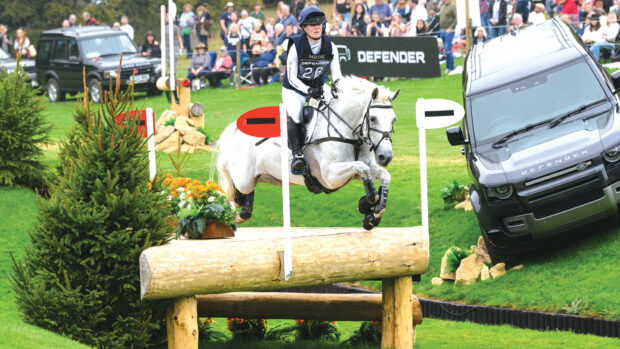Mouthguards and how they might help in preventing concussion are back in the spotlight, following recent research and developments in other sports.
A Canadian youth ice-hockey study, published in a 2023 issue of the British Journal of Sports Medicine, found players who reported wearing a mouthguard had a 28% lower concussion rate and 57% lower odds of concussion compared to non-wearers.
World Rugby is now recommending that players at all levels of the sport wear a mouthguard, following the concussion and mouthguard-related findings in ice hockey. It has also integrated smart mouthguard technology into head-injury assessments, which means that pitch-side experts can monitor head impact data collected by sensors inside gumshields.
Their role hit the headlines in February, when George Turner became the first player to be removed from a game after his mouthguard sensor reported an impact that could have caused a concussion during the Scotland vs France Six Nations match. He was allowed to return to play after assessment.
British Team Chasing (BTC) is “strongly” recommending all riders wear a mouthguard this season.
“While it’s not a rule, and we’re not absolutely not saying everybody has to wear a mouthguard, we as British Team Chasing – in view of the limited evidence we’ve read – would recommend that people do all they can to reduce their impact of concussion,” BTC working group member Helen Millward told H&H.
She added that from the cross-sport evidence she has read, there is no “conclusive evidence” that it can make a “huge difference”. There is evidence that wearing a mouthguard can decrease risk and possible severity of concussion.
This recommendation came as part of a review of the one-fall-and-out rule. This means that riders who are unseated are not allowed to remount and carry on with their round, which will remain in place – with amendments – this year.
The British Horseracing Authority (BHA) sent a recommendation to jockeys this year, suggesting that they buy a custom-made mouthguard. In parallel, in cases of falls, the BHA is now recording whether a jockey was wearing a mouthguard or not, and whether it was custom-made, so it can track what the association between use and injury might be.
The BHA said that it does not know whether the benefits in ice hockey are sport-specific, and therefore whether they can be transferred to other sports. But anecdotally, some jockeys feel a mouthguard is helpful and that a well-fitted, custom-made mouthguard does protect against dental injuries.
It is a requirement in Irish racing for jump jockeys to wear mouthguards, and the BHA has had conversations about smart mouthguards.
There is other prevention work ongoing in sport and across equestrian disciplines. The FEI announced a “comprehensive review” of its concussion policies last summer, the BHA is progressing a warm-up programme from the Injured Jockeys Fund as a general injury prevention tool, and both have been represented on a working party focusing on helmets and testing standards.
This time last year, British Equestrian (BEF) published new concussion guidelines for riders and the federation is running an awareness campaign this month (March) as the spring competition season ramps up.
Responding to the recent discussions surrounding mouthguards and concussion, BEF chief medical officer Dr Anna-Louise Mackinnon told H&H: “While there is no evidence to prove that wearing a mouthguard will prevent concussion in horse riding, an association between mouthguard use and a reduction in the number of concussions has been found in youth ice hockey.
“Riders are advised to wear a mouthguard, as it will help to prevent dental injuries and may help to reduce the number and severity of concussions, but this is unproven.”
British Eventing chief executive Rosie Williams told H&H that the organisation is working with the BEF to roll out education for riders and connections about the importance of positively managing any concussion symptoms.
“Having been very involved in the research around mouthguards and concussion in rugby, I know the time it has taken to ensure that the research stacks up with the sport’s needs,” she said.
“We will also ensure that all safety equipment, helmets, body protectors and – if the science tells us – mouthguards protect our riders.”
You might also be interested in:

Subscribe to Horse & Hound magazine today – and enjoy unlimited website access all year round
Horse & Hound magazine, out every Thursday, is packed with all the latest news and reports, as well as interviews, specials, nostalgia, vet and training advice. Find how you can enjoy the magazine delivered to your door every week, plus options to upgrade your subscription to access our online service that brings you breaking news and reports as well as other benefits.




